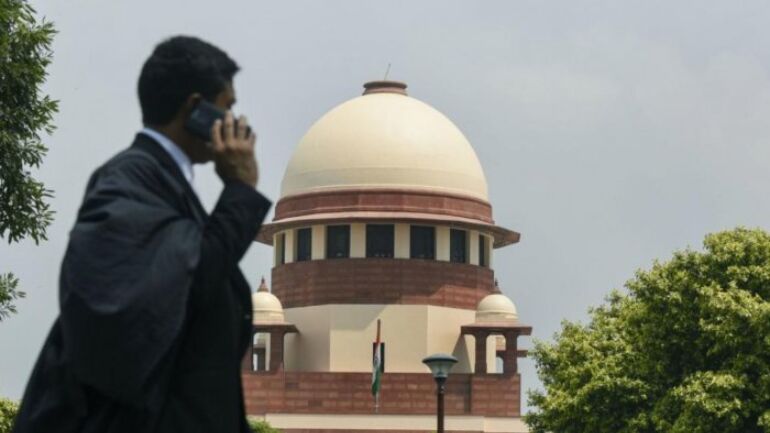In a first, 9 new SC judges take oath at one go

New Delhi: History was created in the Supreme Court on Tuesday as for the first time nine new judges took the oath of office at one go, taking the working strength to 33.
The new judges who were administered oath of office as Apex Court judges include Justices Abhay Shreeniwas Oka, Vikram Nath, Jitendra Kumar Maheshwari, Hima Kohli and B V Nagarathna.
Besides, Chief Justice of India (CJI) N V Ramana also administered the oath of office to Justices C T Ravikumar, M M Sundresh, Bela M Trivedi and P S Narasimha, who was a senior advocate and former Additional Solicitor General.
The strength of the Supreme Court judges has now risen to 33, including the CJI, out of the sanctioned strength of 34.
Justice Oka: Born in May 1960, the senior-most of the nine judges, he was Chief Justice of the Karnataka High Court before being elevated to the top court. Before that, he was a judge of the Bombay High Court.
He is known for orders protecting fundamental rights and civil liberties, even passed several orders in COVID-19 related matters, including on the plight of migrant workers.
Justice Nath: Born on September 24, 1962, appointed Chief Justice of the Gujarat High Court on September 10, 2019, he was elevated as a judge of the Allahabad High Court in September 2004.
He's in line to become the CJI upon retirement of Apex Court judge Justice Surya Kant in February 2027.
Justice Maheshwari: Born on June 29, 1961, he was Chief Justice of the Sikkim High Court before being elevated to the top court.
He was made Madhya Pradesh High Court judge in November 2005. In October 2019, he became the Chief Justice of the Andhra Pradesh High Court.
Justice Kohli: Chief Justice of the Telangana High Court before the elevation.
Born on September 2, 1959 in Delhi, Justice Kohli did LL.B from the Campus Law Centre in Delhi University.
He was the standing counsel and legal advisor of the New Delhi Municipal Council at the Delhi High Court from 1999-2004.
He was appointed additional judge of the Delhi High Court on May 29, 2006, and took oath as a permanent judge on August 29, 2007.
She dealt with matters related to COVID-19 in high courts of Telangana and Delhi and passed several orders to assuage the hardships faced by citizens.
Justice B V Nagarathna: In line to become the first woman CJI in September 2027, she was a judge of the Karnataka High Court before being elevated to the top court.
Born on October 30, 1962, she is the daughter of former CJI E S Venkataramiah.
To succeed Justice Nath as the CJI, she will have a tenure of over a month as the head of the Judiciary.
She passed several notable orders, including on matters related to the pandemic, including problems faced by migrant workers.
Justice Ravikumar: Sworn-in as additional judge of the Kerala High Court in January 2009, he was appointed as a permanent judge there with effect from December 15, 2010.
Born in January 1960, he obtained a law degree from the government law college, Kozhikode and was enrolled as an advocate in July 1986.
Justice Sundresh: He was a judge of the Madras High Court before being elevated to the Apex Court.
Born on July 21, 1962, he was appointed additional judge of the Madras High Court on March 31, 2009; and made a permanent judge in March 2011.
Justice Trivedi: Born in June 1960, he was a judge of the Gujarat High Court before being elevated to the top court.
He was elevated as a judge of the Gujarat High Court in February 2011.
Justice Narasimha: A senior advocate before being elevated to the bench directly from the bar.
A former Additional Solicitor General, he is also in line to become the CJI, succeeding Justice Nagarathna. He will have a tenure of over six months as the CJI.
As a senior advocate, appeared in several important matters in the Supreme Court, including the historic Ayodhya case. The top court had cleared the way for construction of Ram Temple at the disputed site and directed the Centre to allot a five-acre plot to the Sunni Waqf Board for building a mosque.
As a law officer, he had represented the Centre before the top court in the case related to the shooting of two Indian fishermen by two Italian Marines.



